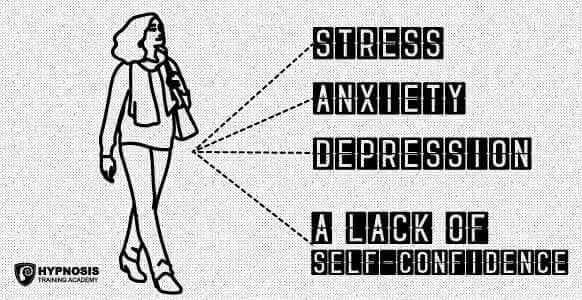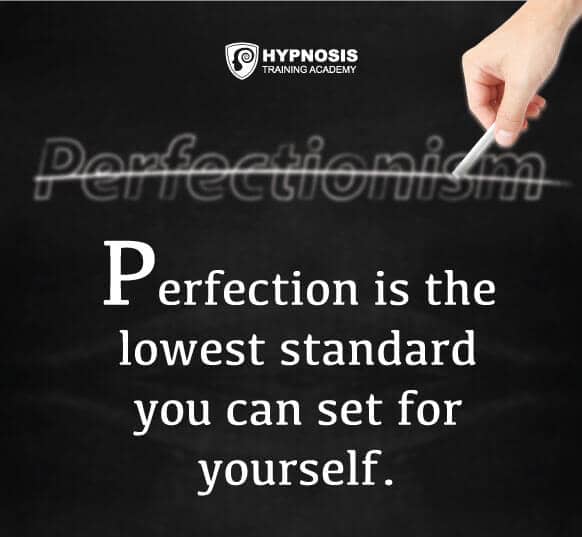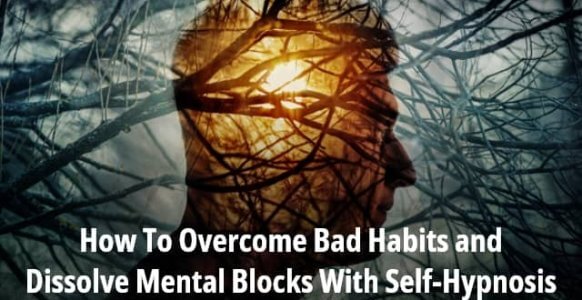
Could you be suffering from imposter syndrome?
It’s not a disease or physical ailment.
It’s more of a way of thinking… about yourself.
In fact, almost everyone you meet has been affected by it…
… including some of the most well-known people on the planet.
People like best-selling author Maya Angelou and physicist extraordinaire Albert Einstein.
So what is it exactly?
It’s the feeling that you don’t deserve to be where you are.
That you don’t deserve the success you’ve achieved in your life or career.
It’s a kind of insecurity that makes you feel like a fraud, even though you know you’ve had to work hard and make sacrifices to get as far as you have.
And that feeling can cause you to get stuck and make it impossible for you to move forward.
Where Does Imposter Syndrome Come From?
You’ll find definitions for imposter syndrome scattered all over the internet. According to the Forbes article, Why Do So Many Women Feel Like Frauds? 4 Tips to Deal With Chronic Self-Doubt, people with the syndrome feel “inadequacy and self-doubt” even when there is evidence that shows the exact opposite.
These feelings make them unable to recognize or celebrate their successes because deep down they don’t believe they deserve them.
Psychologist Pauline Rose Clance and her colleague Suzanne Imes coined the term “Imposter Syndrome” in an article written in 1978. They decided to study the syndrome in more detail after noticing how many undergraduates felt undeserving of their accomplishments.
Even though they’d gotten excellent grades, the undergraduates still didn’t think they were worthy of their university places. And they found the same sort of feelings were also prevalent amongst high-achievers in many other professions.
In the below TED Talk, you can hear how Clance and Imes tried to tackle the issue. They discovered that it was a universal problem, affecting people regardless of their age, gender, race, or occupation.
But what the researchers really wanted to know was: where do the feelings come from?
Why do intelligent and hard-working people feel like frauds?
Even when they’ve had massive successes and achieved what they set out to achieve?
There seem to be a number of related issues that surround the syndrome, such as:
- Highly skilled people often think or assume that others are just as well trained
- They feel they don’t deserve any more praise than anyone else
- The more they achieve, the more fraudulent they feel
Another point made in the TED Talk is that everyone is susceptible to pluralistic ignorance.
But it’s difficult to know how hard someone else works, how difficult their job is, or how much they might doubt their own abilities.
And since you can’t know any of those things for certain, you might assume they’re more capable than you are.
And if you feel like that, it could be enough to prevent you from sharing your ideas or putting your hypnosis skills to use.
Imposter syndrome can play havoc with your life, causing a whole host of issues such as:

So what can you do to overcome those feelings and combat imposter syndrome?
Talk It Out With Others… Don’t Let Your “Mental Story” Run The Show!
One of the best ways to fight imposter syndrome is simply to talk about it.
If you’re feeling insecure about your abilities, you might not want to ask other people how they think you’re doing.
You might be afraid to hear what they have to say.
But you might also be surprised to hear that they often feel the same way!
Just knowing that these feelings of insecurity have a name (i.e. imposter syndrome) goes to show you that it affects lots of people.
And finding out that your peers or mentors have experienced the same thing can be a tremendous relief.
Talking about your feelings is one way you can rise above these insecurities.
When you’re open and above board about it, you take away the element of fear.
You take the weight off your shoulders and give yourself the chance to become the hypnotist or hypnotherapist you always wanted to be.
Because whoever you are, you are capable of doing good things.
You have the capacity to go as far as you want and to truly excel at what you do.
… As long as you don’t let the “I’m not good enough” story run the show.
How Insecurities Can Seriously Undermine Your Success
According to an article in Psychology Today, there are 3 reasons why you might feel insecure:
1. Insecurity due to failure or rejection
Failure or rejection will naturally make you see things from a more negative viewpoint. But take heart.
Before he became president, Abe Lincoln suffered one defeat after another, losing his job, not getting nominated to Congress, and failing in a couple of Senate bids. But those things didn’t stop him from pursuing his dreams.
When you struggle through hard times and finally succeed, it gives you a boost that raises your self-esteem.
Reach out to family and friends who can help you follow your dreams. Get feedback from people you trust and respect so that you can move your goals forward one step at a time. And make a list of all the times you have succeeded. Challenge the voice in your head that says “you can’t” by recalling all the times “you have” in the past.
2. Insecurity due to a lack of confidence
If you think that other people are always evaluating the things you say and do, that can make you feel anxious and self-conscious. You might avoid social situations to avoid feeling that way, believing that you’re just not interesting enough or good enough.
But lots of people feel exactly the same way in those situations. The secret is to focus on other people and make a genuine effort to get to know whoever you’re talking to.
3. Insecurity due to a tendency toward perfectionism

It’s a bit of a cliché, but it’s nevertheless true. Nobody’s perfect.
It would be great if everyone had the ideal partner, their dream job, the perfect house, and so on. But life isn’t like that. It’s much more unpredictable and often out of your control.
When things don’t quite go according to plan, the perfectionist in you can feel disappointed and frustrated. That’s why people will encourage you by telling you to “do your best”. They never tell you to make sure it’s perfect because they know that perfection is difficult (if not impossible) to achieve. So don’t be so hard on yourself. Chances are, your best is a lot better than what many other people can do.
You Don’t Have To Settle For A Life Of Mediocrity!
The truth is that it’s easy to settle for less than your best.
You get into habits and follow the same patterns, day in and day out.
Everybody does.
Why? Because routines help keep things running smoothly.
But they also create their own kinds of problems.
For instance, do you ever find yourself doing something that goes against your instincts?
That little voice in your head tells you not to, but you do it anyway.
It might be something small, but the longer it goes on, the bigger it becomes.
And instead of being true to yourself, you adjust and adapt.
You justify it and move on.
But your conscience keeps reminding you about it, nagging away in the background.
Because you know you can do better.
You know you deserve better.
And you know you have the power to make it happen.
It’s easy to keep on doing what you’ve always been doing.
But who benefits from that?
If your goal is to become a professional hypnotist, for example, then you need to take steps to make it happen.
That means practicing hypnosis on somebody.
Like anything else you do in life, you have to start small and build it up.
If you don’t think you’re good enough to practice hypnosis on another human being, then you might offer taster sessions. That way you and your subjects (who could all be potential clients) get something out of it. You get a bit of much-needed practice, and they get some free hypnosis or hypnotherapy.
Or, if giving free hypnosis sessions is too hard on your bank balance, you might offer half-price introductory sessions based around a specific issue, such as giving up smoking, managing weight loss, getting rid of phobias, or whatever issue you feel comfortable dealing with.
The only way to become a hypnotist is to hypnotize someone. No matter how many books you read or training courses you attend, you won’t master it until you get to experience real people. And the more hands-on experience you have, the easier it will become and the better you’ll be at hypnosis.
Everybody has to start somewhere, whether they’re concert pianists, doctors, plumbers, chefs, or anybody else you can name. The trick is to start – somewhere – and keep going.
The secret to success isn’t actually a secret at all. It’s the ability to apply yourself and keep applying yourself. When you do, you’ll find out exactly how much you know and how good you are at what you do.
So there won’t be any need to call yourself an imposter any longer.





![[ADVANCED GUIDE] How To Master Hypnotic Regression Therapy - Part I: Essential Principles To Profoundly Transform Your Subject’s Emotional Trauma [ADVANCED GUIDE] How To Master Hypnotic Regression Therapy - Part I: Essential Principles To Profoundly Transform Your Subject’s Emotional Trauma](https://hypnosistrainingacademy.com/wp-content/uploads/2016/09/hypnotic-regression-therapy-essential-principles.jpg)

![Yogic Breathing For Hypnosis: 3 Easy Techniques To Ground & Relax Your Clients Before Inducing A Hypnotic Trance [Includes Infographic] Yogic Breathing For Hypnosis: 3 Easy Techniques To Ground & Relax Your Clients Before Inducing A Hypnotic Trance [Includes Infographic]](https://hypnosistrainingacademy.com/wp-content/uploads/2019/05/yogic-breathing-for-hypnosis.jpg)



